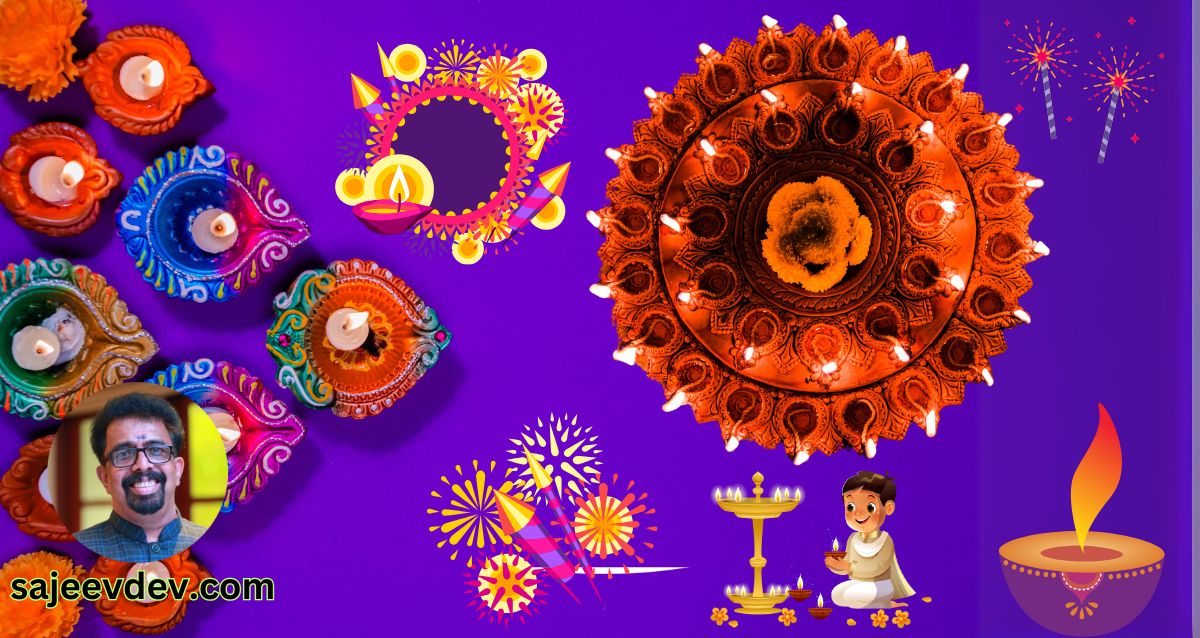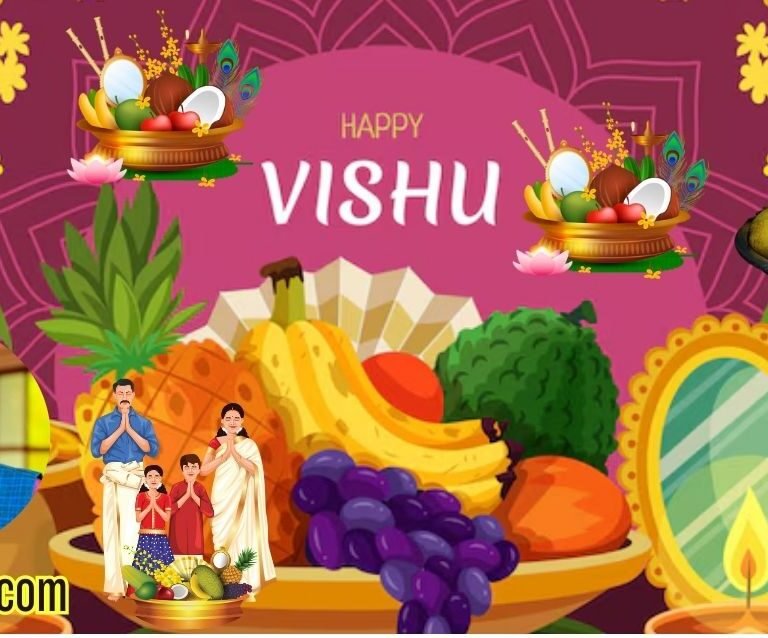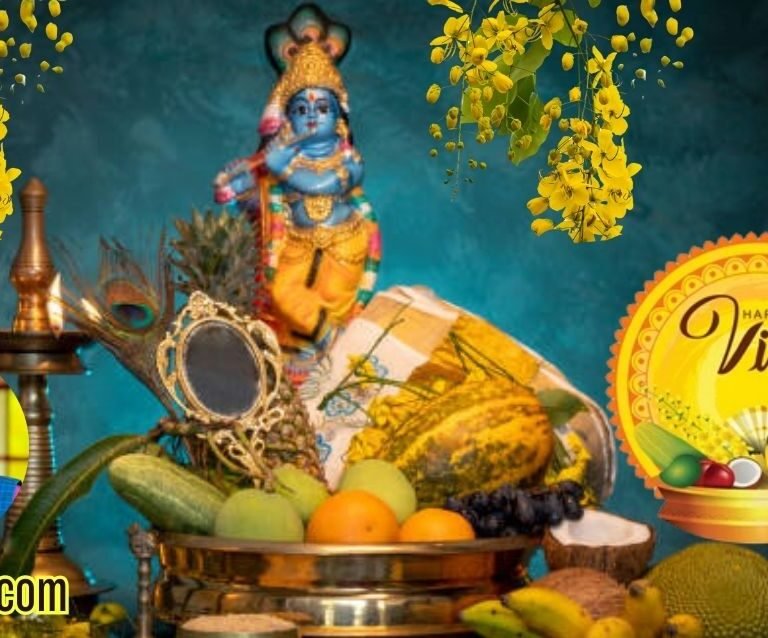Diwali, often referred to as Deepavali, is one of the most significant festivals celebrated within the Hindu community and by various other religious groups across India and around the world
Diwali, often referred to as Deepavali, is one of the most significant festivals celebrated within the Hindu community and by various other religious groups across India and around the world. This vibrant festival, also known as the Festival of Lights, symbolizes the triumph of light over darkness and good over evil. Its observance typically encompasses a span of five to six days, with each day carrying its own meaning and set of rituals.
The festival’s roots can be traced back to ancient Indian traditions, rooted in various mythological stories and agricultural practices. One of the most prominent narratives associated with Diwali is the return of Lord Rama to his kingdom, Ayodhya, after a 14-year exile, during which he vanquished the demon king Ravana. The citizens of Ayodhya celebrated Lord Rama’s return by lighting oil lamps, or diyas, signifying the light of hope that dispels the darkness of despair.
Diwali typically occurs in late October or early November, aligning with the lunar calendar. Each day of the festival holds unique significance; for instance, the first day, known as Dhanteras, is dedicated to wealth and prosperity, while the most celebrated day, known as Lakshmi Puja or the main Diwali day, honors the goddess of wealth and prosperity, Lakshmi. Numerous households illuminate their homes with diyas and rangoli, while also exchanging gifts and sweets, fostering a spirit of joy and camaraderie.
In addition to its cultural importance, Diwali promotes the values of generosity, kindness, and togetherness. As families gather to celebrate, this festival transcends religious boundaries, uniting people through shared joy and festive spirit. Understanding the profound significance of Diwali allows us to appreciate the rich tapestry of traditions that uphold its celebration year after year.
Historical and Mythological Significance
Diwali, also known as the Festival of Lights, holds profound historical and mythological significance in Indian culture. Its roots can be traced back to ancient texts and traditions, illuminating the festival’s importance in the lives of millions. One of the most celebrated narratives surrounding Diwali is the return of Lord Rama, Sita, and Lakshmana to Ayodhya after vanquishing the demon king Ravana. This event marks the victory of good over evil, symbolizing the triumph of light (goodness) over darkness (ignorance). The joyous celebration of their return led to the citizens of Ayodhya illuminating the town with lamps, which signifies the essence of Diwali as a festival of light.
Another significant aspect of Diwali is its association with Goddess Lakshmi, the deity of wealth, prosperity, and fortune. During this auspicious time, devotees engage in prayers and rituals to invite her blessings into their homes. It is believed that Lakshmi roams the earth on Diwali night and bestows prosperity on those who keep their homes clean and illuminated. Additionally, the festival also honors Lord Ganesha, the remover of obstacles, who is invoked by devotees early in the festivities to ensure a smooth and prosperous year ahead.
The myths surrounding Diwali are not only limited to the Ramayana; they vary across different regions and communities within India. For instance, in some areas, Diwali commemorates the victory of Lord Krishna over the demon Narakasura. Each narrative enriches the cultural tapestry of the festival, showcasing its significance across various demographics. Overall, the deep-rooted historical and mythological stories associated with Diwali infuse the festival with meaning, reinforcing the timeless message of hope, renewal, and the celebration of life through light and joy.
Regional Variations of Diwali
Diwali, often referred to as the Festival of Lights, is celebrated with immense fervor across various regions, each adding its distinctive flavor to the festivities. The festival transcends cultural boundaries, uniting diverse religious communities in its celebration. Among Hindus, the customs and rituals associated with Diwali may vary significantly from one region to another. For instance, in eastern India, particularly in Bengal, the festival holds special significance as it coincides with the worship of the goddess Kali. Here, the celebrations often feature elaborate rituals and community feasts, showcasing the cultural heritage of the area.
On the other hand, the Jain community observes Diwali by commemorating Lord Mahavira’s nirvana, or enlightenment, thus giving the festival a spiritual dimension centered around liberation and self-realization. During this time, Jains partake in special prayers and rituals, emphasizing a commitment to non-violence and enlightenment. Meanwhile, Sikhs celebrate Diwali, known as Bandi Chhor Divas, marking the release of Guru Hargobind Ji from imprisonment. This occasion emphasizes themes of freedom and justice, as Sikhs gather in their gurdwaras to light lamps and share in communal meals.
Moreover, Newar Buddhists in Nepal celebrate a unique version of Diwali known as “Bhaipurnima.” This observance underscores the importance of familial bonds, particularly between brothers and sisters. The Newar culture enhances the Festival of Lights through traditional dances, music, and various local dishes, making their celebrations both vibrant and multifaceted. Therefore, while the central theme of Diwali remains one of light triumphing over darkness, the regional variations in observances enrich the festival, transforming it into a collective celebration of cultural identity and spiritual significance among different communities.
Preparations for Diwali
Preparations for Diwali, known as the Festival of Lights, are an integral part of the celebrations and typically begin weeks in advance. The meticulous planning and execution of various tasks contribute to the festive spirit that envelops households during this time. Central to these preparations is the thorough cleaning of homes, symbolizing the removal of negativity and the welcoming of prosperity and happiness. This cleansing ritual is not merely a physical act but also represents a spiritual purification, aligning with the festival’s themes of renewal and hope.
As homes are cleaned, emphasis is placed on decorating with traditional elements such as diyas and rangoli designs. Diyas are small lamps made of clay, typically filled with oil, which are lit to ward off darkness and bring in light. Placing them at the entrance and throughout the house creates a warm, inviting atmosphere that is integral to Diwali celebrations. Rangoli, on the other hand, involves creating intricate patterns and designs on the floor using colored powders, rice, or flowers. This art form not only enhances the visual appeal of the home but also serves to invite prosperity, as it is believed to bring good fortune to the household.
Additionally, certain rituals prior to the main celebrations are observed, including a ritual oil bath. This cleansing activity is often performed on the day before Diwali, signifying the shedding of old energy and the readiness to embrace new beginnings. Families may gather to partake in this tradition, reinforcing communal bonds while also preparing spiritually. Other common practices include shopping for new clothes, purchasing gifts, and preparing special foods that will be shared among loved ones. These collective efforts serve to enhance anticipation for the grand festivities, as individuals prepare to celebrate the triumph of light over darkness and good over evil.
Celebratory Customs and Traditions
Diwali, often referred to as the Festival of Lights, is celebrated with a plethora of customs and traditions that hold significant meaning for the participants. One of the most prominent customs during Diwali is the illuminating of homes and public spaces with numerous lamps, known as diyas, and colorful rangoli designs. This act is not merely for aesthetic appeal; it symbolizes the victory of light over darkness and knowledge over ignorance. The illumination serves as an invitation for the goddess Lakshmi, the deity of wealth and prosperity, to bless households with abundance.
Another customary practice is the setting off of fireworks and firecrackers. This tradition is believed to ward off evil spirits and is enjoyed by people of all ages. However, it is essential to highlight the importance of safety and environmental considerations when indulging in these celebrations, as excessive noise and pollution have raised concerns in recent years. As a result, many communities advocate for eco-friendly alternatives that still capture the festive spirit.
Food also plays a central role in the Diwali celebrations, with families preparing an array of delicacies that symbolize joy and prosperity. The sharing of sweets and savory dishes with friends and neighbors fosters a sense of community and strengthens social bonds. Various rituals, including Lakshmi puja, are performed to seek blessings and express gratitude for the past year’s fortune. Families gather to engage in worship, light candles, and offer prayers, further solidifying their connections to tradition and each other.
In addition, social gatherings during Diwali bring people together, reflecting the spirit of togetherness that characterizes this festival. From exchanging gifts to sharing meals, these interactions create lasting memories and nurture relationships within families and communities. Thus, the customs and traditions associated with Diwali serve not only to celebrate the festival but also to enhance social and familial ties, underpinning the importance of unity and gratitude during this auspicious occasion.
Food and Festivities
Diwali, known as the Festival of Lights, is not only a time for spiritual reflection but also a grand celebration of food. The culinary traditions associated with this festival are as diverse as the cultures and communities that partake in its observance. Each region in India has its unique assortment of dishes that are prepared during this festive period, showcasing the rich tapestry of flavors and ingredients distinctive to local customs and preferences.
One of the highlights of Diwali is the preparation of various traditional dishes, which may include savory snacks like samosas, pakoras, and chivda. These dishes are often enjoyed by family and friends as they gather to celebrate. However, it is the sweets that truly embody the essence of Diwali. Treats such as laddus, barfis, and gulab jamun are prepared in large quantities and exchanged among neighbors and loved ones. The act of sharing mithai not only symbolizes goodwill and friendship but also fosters communal harmony, reinforcing the bonds between families and the wider community.
For many households, the preparation of these culinary delights becomes a communal affair, uniting family members in the kitchen as they share recipes and cooking techniques passed down through generations. The excitement builds as the sweet aromas fill the air, creating a sense of anticipation and joyous spirit. This collective experience underlines the core values of Diwali — love, togetherness, and gratitude — and emphasizes the role that food plays in marking the celebration.
As families come together to enjoy festive meals, food becomes more than sustenance; it emerges as a critical vehicle for creating memories, reinforcing relationships, and celebrating life’s blessings. The sharing of these culinary treasures transcends individual households and plays a significant role in the overall ambiance of Diwali festivities, making the festival a rich tapestry woven with shared experiences and delightful flavors.
Cultural and Community Impact
Diwali, often referred to as the Festival of Lights, holds immense cultural and communal significance in various parts of the world. It transcends mere religious observance, embodying a spirit of unity, joy, and shared celebration among diverse communities. Locally organized events, fairs, and parades serve as crucial platforms for fostering connections among neighbors and inviting participation from a broad array of people, regardless of their backgrounds.
One of the remarkable aspects of Diwali celebrations is the emphasis on community involvement. Town centers and local parks frequently transform into vibrant hubs of activity, where families come together to partake in traditional festivities. These events often feature an array of food stalls offering regional delicacies, arts and crafts booths showcasing local artisans, and stages for live performances of music and dance that celebrate the rich tapestry of cultural expression associated with the festival.
Furthermore, the preparation and execution of Diwali celebrations encourage communities to engage with one another more meaningfully. Neighbors collaborate to decorate their localities with colorful rangoli, illuminate homes with diyas, and share sweets, thereby reinforcing bonds and fostering a sense of belonging. Cultural performances serve not just as entertainment but also as educational experiences, promoting an understanding of the various traditions associated with Diwali. Workshops and demonstration sessions on making traditional handicrafts, cooking festive dishes, or learning dance forms can add layers of engagement and knowledge among participants.
Additionally, Diwali celebrations can promote inclusivity. Many communities make efforts to involve non-Hindu participants, thus providing an opportunity for cultural exchange and appreciation. By welcoming people from different backgrounds to join in the festivities, Diwali reinforces the message of harmony, understanding, and the importance of community engagement in a multicultural society.
Diwali Beyond India: Global Celebrations
Diwali, widely known as the Festival of Lights, extends its vibrant celebrations beyond India to various corners of the globe, embraced by the Hindu, Sikh, and Jain communities in diverse cultures and environments. As a hallmark of these religions, this festival represents the triumph of light over darkness and good over evil, which resonates universally. In countries such as Nepal, for instance, Diwali, or Tihar, is celebrated with similar pomp and grandeur, reflecting the unique cultural nuances that regional variations bring to the festivities.
In Malaysia, the Hindu population commemorates Diwali with splendid celebrations, where the streets are adorned with colorful lights and intricate decorations. The festival is marked with communal celebrations that include traditional dances, music performances, and the sharing of sweets. Similarly, the festival resonates strongly with the Indian diaspora in Fiji, where it holds a special place in the hearts of the local population. Here, Diwali is characterized by cultural programs, fireworks display, and the joyous gathering of families, embodying the essence of togetherness that the festival emphasizes.
Moreover, in countries like the United States, Diwali has gained recognition beyond the Indian community. Major cities, such as New York and Los Angeles, host large-scale celebrations that attract people from different backgrounds, fostering an understanding of Hindu culture and traditions. Temples across the nation hold elaborate prayer ceremonies, while community events feature performances, food stalls, and artisan markets, creating an inclusive atmosphere. Australia also witnesses similar enthusiasm, where multicultural festivals celebrate Diwali, inviting participation from various ethnicities and thus amplifying the festival’s global presence.
As the Hindu, Sikh, and Jain populations around the world celebrate Diwali, the festival continues to transcend cultural boundaries, fostering camaraderie and celebration of shared values that, in essence, unite these communities in joyous observance of light and hope.
The festival serves as a reminder of the importance of community and family bonds, encouraging people to come together in celebration
As we reflect on the joyous occasion of Diwali, it becomes evident that this festival embodies profound values that resonate with individuals and communities alike. Diwali, often referred to as the Festival of Lights, symbolizes the triumph of good over evil, illuminating the essence of hope and renewal that it instills within us. The light symbolizes not just the physical brightness but also the emotional and spiritual upliftment that millions experience during this auspicious time.
The festival serves as a reminder of the importance of community and family bonds, encouraging people to come together in celebration. It creates an atmosphere where shared joy and togetherness flourish, enriching social ties and reinforcing a sense of belonging. The customs associated with Diwali, including lighting lamps, exchanging sweets, and performing puja, play an integral role in fostering connections among friends and family. In today’s fast-paced world, where individualism often takes precedence, Diwali offers an opportunity to pause and appreciate the significance of collective identity.
Additionally, Diwali urges us to remember our ancestors and honor their legacy. By acknowledging their contributions and lessons, we deepen our understanding of who we are and what we stand for. This reflective practice not only cultivates gratitude but also strengthens our cultural roots in an increasingly globalized society. As individuals celebrate Diwali, they find a renewed sense of purpose, drawing strength from communal activities and familial traditions.
In summary, Diwali stands as a powerful celebration of hope, renewal, and community. This festival unifies diverse cultures and reminds people of their interconnectedness, highlighting the enduring importance of values that transcend time and reinforce social bonds. Through these reflections, we can appreciate how Diwali continues to be relevant, shaping personal and communal identities in meaningful ways.









